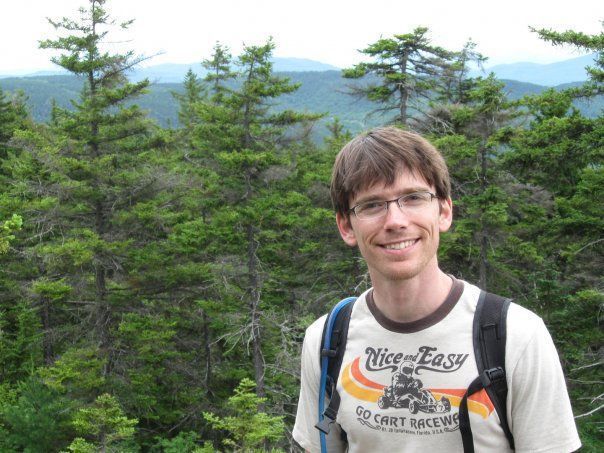Some information may be outdated.
When I lived in Morocco, I learned devotion meant cabbies would park on any curb to unfurl prayer mats when the adhan echoed through Tangier’s cobblestoned streets.
I realized a prince rooming across the hall was merely another human being. I discovered being an American entitled me to win astounding scores from my pre-calculus teacher, travel the country on a whim, join the headmaster for drinks following the school play, and break curfew.
I came to appreciate that people see the world through different eyes. History and personality and culture color these lenses through which we comprehend existence. At the time, I was an avid runner. I ran every day after class, exploring neighborhoods that sprawled over the Mediterranean coast, bringing pedestrians up short with my bare legs, doubly shocking them with an Arabic greeting – As-salamu alaykum (peace be upon you). Through old slums, down along the salty port, upward between walled estates of affluent Europeans – my running circuits expanded to cover the entire city.
For my edification or perhaps for my safety, one of the guards at the American School introduced me to a local runner, Muhammad. He spoke decent English and brought me to Tangier’s outskirts, then the countryside beyond. We cut down dusty dirt tracks and surveyed arid farmland. Sometimes we tested our speed against each other, sprinting fast back to the campus gates and collapsing on a redolent green to stretch. On one foray into the hinterlands, we rounded a thicket and nearly plowed into a bearded old man clad in a white robe and sandals. Alarmed, he stumbled back and yelled at us as we sped past.
“What did he say?” I asked Muhammad, afraid that he was angry with us for trespassing.
“He asked what we are running from, who is chasing us.”
I laughed. Muhammad grinned. And we ran on.
Six weeks later, I found myself massed behind the starting line of my first ever road race, a 15K. At the sound of a pistol, Muhammad and I and a hundred others set off for five flat laps around a circuit near the waterfront. Moroccans are famously fast runners. Moroccan Khalid Khannouchi held the marathon world record shortly after my time in Africa. I watched the top seeded runners dash away as if I languished in a slow-motion twilight zone. They blasted past me on the far side of the median. Still I pressed on to do my best. Muhammad and I battled for advantage. The field became ever more strung out. When I passed alone under the shadow of some palms, a spectator stepped out from the crowd and bellowed in English, face contorted with hostility: “You’re going to lose, American!”
I returned his glare and ran on.
The alarmed rural peasant, an aggrieved race spectator, this privileged American exchange student – our worlds illustrate only a fraction of the breadth of human experience. Reflecting on these circumstances (and many more), I see huge divergence between the ways we know reality. I must accept the fact that we will not see eye-to-eye on a vast range of topics. Even here in the small town of Moab, where our views should align more closely, the lenses through which we see differ considerably.
How does a second-generation Mexican American relate to our politics and culture? Compared to a recent arrival from a big city, what is a lifetime Moab resident’s perspective on this changing landscape? How do religion, family, gender and unique life experiences inform the way your neighbor or your colleague see the world?
It comes as no shock that misunderstanding and offense are so common – an emoticon misinterpreted, a statement taken out of context, a subtext real or imagined, a motive assumed, a backstory unknown. Too often a natural human negativity bias and this confusing world join together to throw suspicion and judgment out-of-hand over people and concepts unfamiliar to us. Nature and hard experience have taught us that it’s safer to be paranoid, to reject perspectives different than our own.
As counterbalance, Don Miguel Ruiz’s book “The Four Agreements” hits upon some key ideas, in particular: 1) Don’t make assumptions. My assumption was wrong regarding that Moroccan farmer who seemed angry. Muhammad’s translation revealed that he was only confused by our sudden presence. 2) Take nothing personally. I was furious with that man who bellowed at me during the race. I was the target of his antipathy, but his anger reflected only his perspective. It wasn’t about me. It was about him. Ruiz says, “When we take something personally, we make the assumption that they know what is in our world, and we try to impose our world on theirs.”
I no longer need to travel to a far-flung place like Morocco to appreciate that our standpoints are different. Mine and Muhammad’s. Yours and mine. Our neighbor’s and colleague’s. Experience of the human condition keeps piling up and reiterating daily: I should assume nothing and remember there are many ways, unfathomable or lovely, to see existence. Let us debate ideas and keep ourselves safe, but let us also acknowledge the vast unknown, usually benign and often beautiful backstory of our fellow human beings.
Daniel McNeil is the director of Grand Area Mentoring.
Appreciate the coverage? Help keep local news alive.
Chip in to support the Moab Sun News.



